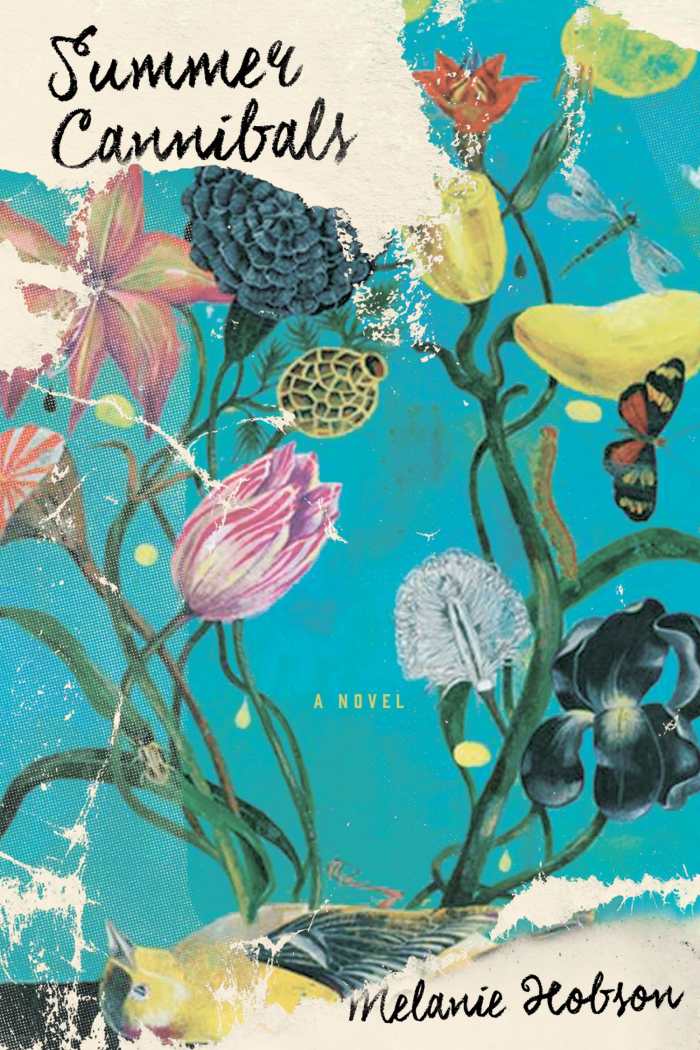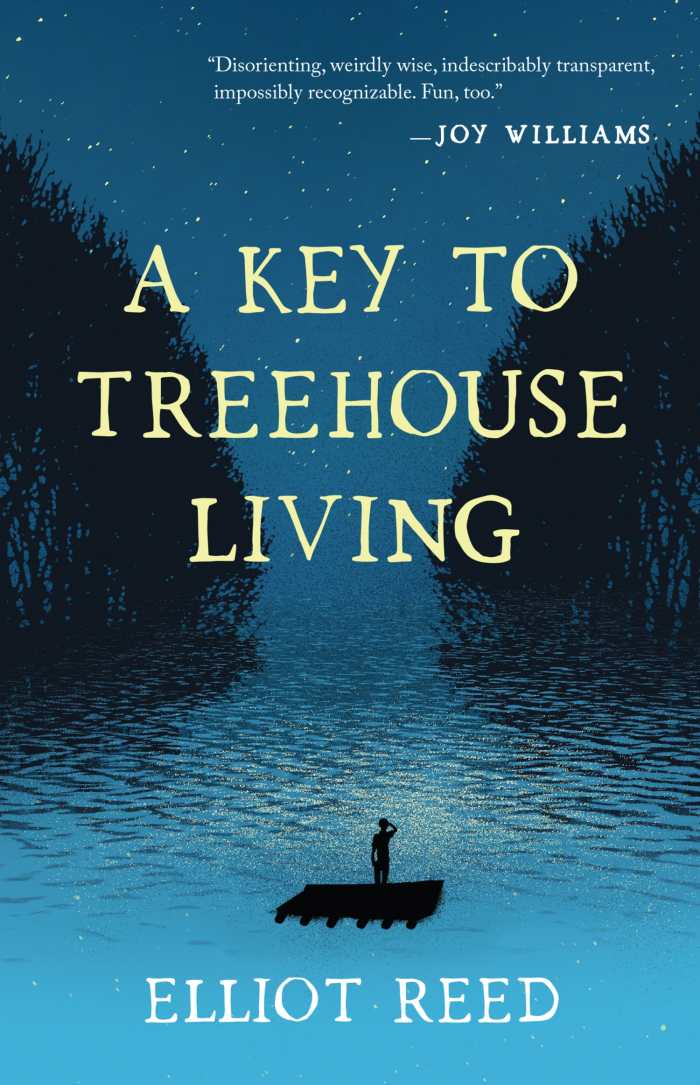Book of the Day Roundup September 10-September 14

Summer Cannibals

Melanie Hobson
Grove Press
Softcover $16.00 (288pp)
978-0-8021-2852-2
Buy: Local Bookstore (Bookshop)
Melanie Hobson’s Summer Cannibals is a vibrant, vicious family portrait in which three adult daughters come home.
The family matriarch, Margaret, has summoned everyone to rally around her very pregnant daughter, Pippa. The girls’ father is enraged that Pippa’s debilitating depression required her return, interrupting his preparation for a garden tour. As they arrive at the house, which sits on a cliff overlooking Hamilton, Ontario, the girls find that it is bursting at the seams—with resentments and groceries, priceless heirlooms and hurtful secrets. This is a place that is both rich and troubled—as are those within it.
From the first page, individual character dissatisfactions set the plot boiling. The daughters, all mothers themselves, are each otherwise very different, all with independent streaks. Some sort of doom is grotesquely palpable. Things seem bound to go awry at this reunion, and pity the stranger who’d interrupt it.
As each family member is developed, their differing attitudes about the others become clear; the effect is stunning. Rotating points of view (beginning with the parents) are used to piece together the present story. It is one of well-trod grievances, youthful adventures, and secret past horrors.
The family fascinates. Their story is compelling, and each member woos their listeners to regard the others as they do—effectively enough, until the vantage switches again. The audience is forced to shift alliances repeatedly as the girls’ first day home shifts into the second, with more backstory revealed, and as the story hurtles toward the father’s garden tour and its aftermath.
Discontent rumbles and then crashes down, thanks to the airing of decades of family offenses—resentments that have been carefully tended with the same attention that is given to the rose garden that wraps around the family’s funky mansion. By turns darkly comical and horrifying, Summer Cannibals holds attention.
MEREDITH GRAHL COUNTS (September 12, 2018)
A Key to Treehouse Living

Elliot Reed
Tin House Books
Hardcover $19.95 (170pp)
978-1-947793-04-0
Buy: Local Bookstore (Bookshop)
In Elliot Reed’s captivating A Key to Treehouse Living, William Tyce narrates the unusual and personalized glossary of his troubled young life. William was abandoned by his parents and transferred to the custody of an eccentric uncle when he was young. When his uncle’s behavior turns criminal and sends him to prison, William, now in his teens, again finds himself abandoned and left to navigate the sometimes wondrous, sometimes unsavory world at large.
Reed deftly advances William’s story along with the alphabetical list, such as the earlier BABY MEMORIES, which ironically “don’t exist” even though “everything was a game and all you needed was air and milk,” to the XYLOPHONE, HOMEMADE that William sees another prisoner solemnly playing when he visits his uncle in jail. In between are various other brief, impressionistic entries, each clarifying a new element of William’s unsettled existence.
William’s voice is appealingly and alternately streetwise, poetic, comic, melancholy, and confused. He encounters the crazily charismatic drifter El Hondero at the public library, contemplates clouds of yellow butterflies or snapping turtles that can “rip through a bicep,” and sails away on a makeshift raft to escape being a ward of the state. Finding food like edible mushrooms and staying afloat become primal necessities, with the occasional companionship of a mysterious blind white river rat. Certain people can be helpful—or at least entertaining—while others are unreliable or exploitative.
Through its deceptively simple structure, A Key to Treehouse Living creates a portrait of a compelling, perceptive adolescent who keeps slipping through society’s cracks, either due to circumstances or of his own volition. By the novel’s end, William is still troubled and at risk, but with the hope that perhaps his curious resilience will help him keep adding to the glossary of his distinctive alphabet.
MEG NOLA (September 12, 2018)
Woman World

Aminder Dhaliwal
Drawn and Quarterly
Softcover $24.95 (256pp)
978-1-77046-335-6
Buy: Local Bookstore (Bookshop)
It’s the near future, and the men of the world are going, going, gone. Aminder Dhaliwal’s Woman World, adapted from her serialized webcomic, moves quickly from the unheeded warnings of a geneticist couple who notice that men are disappearing from the gene pool to the world after, where buildings are crumbling and the fate of humanity is uncertain. But it’s not all doom and gloom; left to their own devices, women and girls are finally free to just … be.
Picture this: the freedom to be safely nude in company. Communal sympathy around natural bodily processes. Frank, nonthreatening conversations about sex. There’s an awesome openness to Woman World that cannot be denied; the triumph represented by a community flag whose symbol is Beyonce’s thighs is palpable. Woman World is proudly sex-positive and LGBTQ-affirming, diversity is a matter of course, and the only absolute directive is that you be yourself.
But Dhaliwal is careful not to paint a world without men as an instant utopia; her use of color alone reveals that we’re a more vibrant species when the gang’s all here. The mostly blue, pink, and purple landscape turns gray scale when the Drs. Sharmas’ predictions come to pass. Color returns in short bursts—when the book depicts relics from the past; in an instance of extreme passion; when next generations learn to let their worry go and embrace what is.
Before those steps are taken, though, the women of the book battle familiar mores. They wrestle with doubts about the validity of their leadership; even Gaia struggles to be confident. They are plagued by insecurities in and outside of their relationships. Finding humanity’s new footing requires a feminist reconfiguration—an acceptance of human beings as valuable on their own terms, flaws and all.
Woman World is an often raucous and always moving project. It functions as a giant permission slip for every person to live authentically, external challenges be damned.
MICHELLE ANNE SCHINGLER (September 12, 2018)
Southern Snacks
77 Recipes for Small Bites with Big Flavors

Perre Coleman Magness
The University of North Carolina Press
Hardcover $30.00 (184pp)
978-1-4696-3672-6
Buy: Local Bookstore (Bookshop)
Perre Coleman Magness explains why decadent American Southern food is so darn delicious in Southern Snacks, which acknowledges that sharing bountiful amounts of food is a natural part of the region’s culture—of tailgating, garden parties, comforting the bereaved, welcoming babies, and any other social gathering.
Southerners have perfected the art of “pick-up food”—the small bites and snacks that are beloved and expected at most events—and it shows in the book’s recipes. They highlight regional favorites from country ham to to sweet tea, and beckon to be cooked up through plentiful color photos, creative flavor combinations, and folksy, fun names like Comeback Sauce and Devils on Muleback. One would be hard-pressed to flip through the book without creasing multiple pages and mentally noting, “Oh, gotta make that.”
While the Memphis-based author is proud to feature many recipes from her area, there are tempting contributions from throughout the South: Mississippi Sin (spicy, cheesy ham dip), Kentucky Hot Brown Bites, Bama Wings with White Sauce, and Carolina Caviar (black-eyed pea salad). But there are also Koolickles, pickles strangely brined with Kool Aid, which radiate in neon on gas station counters deep in the Delta.
Breezy, informative recipe introductions relate humorous and nostalgic anecdotes about family parties and catered events, and the many sidebars explain regional food history and entertainments. While most recipes are fairly rich and laden with caloric cheeses, mayonnaise, or porky products, there are many other choices that shimmer with lighter ingredients from the Southern harvest. Sweet potatoes, zucchini, crawfish, field peas, and shrimp are all star ingredients in zesty and original recipes.
Southern Snacks is a delightful addition to the pantheon of Southern cookbooks—an inspirational resource for home and professional cooks alike, brimming over with ideas for bringing something different to the next get-together.
RACHEL JAGARESKI (August 5, 2018)
The Cash Ceiling
Why Only the Rich Run for Office-and What We Can Do about It

Nicholas Carnes
Princeton University Press
Hardcover $29.95 (344pp)
978-0-691-18200-1
Buy: Local Bookstore (Bookshop)
Nicholas Carnes’s The Cash Ceiling aims to answer daunting questions, and skillfully follows through.
Discussions of the lack of class diversity in American political offices are in the spotlight. A focus on inclusion has led to historically underrepresented groups, including women and people of color, gaining more representation. Yet there are barely any working-class people holding office in a country that relies on workers for much of its economic prosperity. In fact, according to Carnes, working-class individuals hold only around three percent of all the political offices in the United States, from local to Supreme Court seats.
The book transforms a flat discourse on economic political diversity into a compelling, lively investigation. As Carnes notes many times, there isn’t enough literature on this problem, its causes, and its solutions. Carnes counters this lack of attention in the crafting of this research-packed work.
The Cash Ceiling is convincing thanks to its well-written arguments, easy-to-understand graphs and data, and moving anecdotes like that of Ruth Ellen Brosseau, a bartender and former teen mom who ran for Canadian parliament and won. The tone is always passionate and persuasive, though it sometimes lapses into repetitive prose. The stance on political parties is neutral; the lack of economic variety in political offices is an issue on both sides of the aisle.
The text expertly analyzes every aspect of the issue at hand, asking why working-class Americans do not run for office in the first place, why they do not get recruited, and so on. It digs at a deeper question, one at the heart of American political philosophy: what’s stopping us from seeing everyone, regardless of class, as capable of holding political office?
MYA ALEXICE (August 27, 2018)
Hannah Hohman
